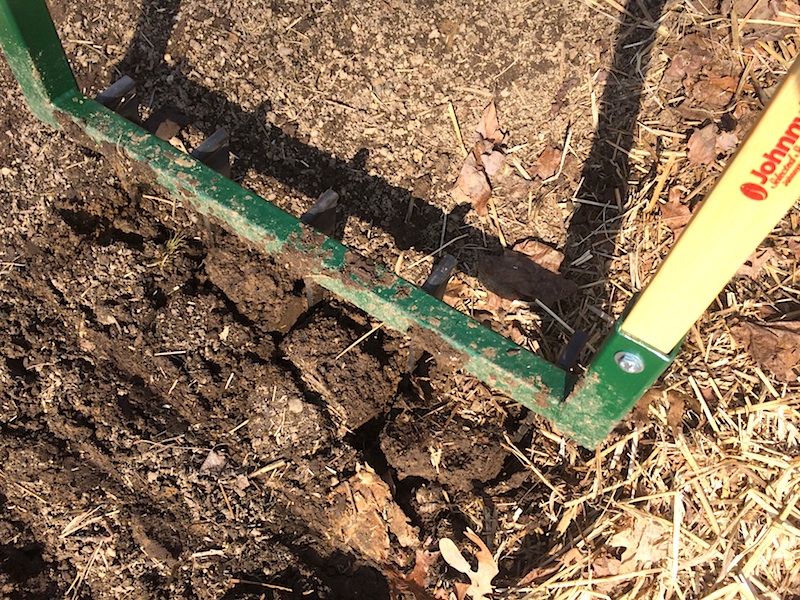The hardneck garlic got a lot of loving in the last month. We removed the straw mulch, and layered the whole bed with compost. And now, the waiting.
Garlic is a simple-yet-complicated crop. There is conflicting advice out there — pretty much everywhere. My go-to source, the lovely Edward C. Smith, author of The Vegetable Gardener’s Bible, says not to water it at all, except in cases of extreme drought. Stanley Crawford, author of A Garlic Testament, indicates that garlic is a heavy feeder that prefers a lot of water. I have done best when I have followed Mr. Smith’s advice to the letter. Unfortunately, my reading comprehension skills have plummeted since the dawn of the Internets, and I have not always done so.
The very first year we grew hardneck garlic, it was a snap. I was so awed by the idea of sowing something in autumn, when I tend to get melancholy over the passing of another growing season (and in anticipation of a cold winter). Hardneck garlic, which goes into the ground in late fall (It can go in earlier in the fall, but such is my timetable.), holds the promise of planting in the sweet late afternoon light on a chilly fall day, just as we’re closing down Victory Farms for the season. It is my last dance with my earthworm-y friends; a parting glance at the wrigglers that I hope will survive the long hard winter ahead. And, it is an optimistic look ahead — that we will all make it through the snowy season, in tact and ready to realize our potential. Each year, we wind up chasing the last bits of daylight, while depositing neatly peeled cloves in cool pockets of freshly tilled soil, pressing them into their wintery graves (or wombs, really) with dirty thumbs that grow numb as we make our way down the bitter rows. The entire bed is mulched with a deep, lofty bed of straw and watered well. Without fail, it snows within days — just to give you an example of how long we wait to close up shop for the season.
Back to the reading comprehension part, to my own aghast, in the years that followed us following Mr. Smith’s easy-to-follow advice, I did the unthinkable. I didn’t read his instructions all the way through. Come each spring, when we were (Clearly!) instructed to un-mulch the beds of their straw and lay down compost, I didn’t heed his instructions all the way through. For several seasons, I did un-mulch the straw, and I did mulch with a compost. And then I, inexplicably (and painstakingly!) re-mulched the bed with the straw. And, I watered heavily.
…

